September 29, 2022
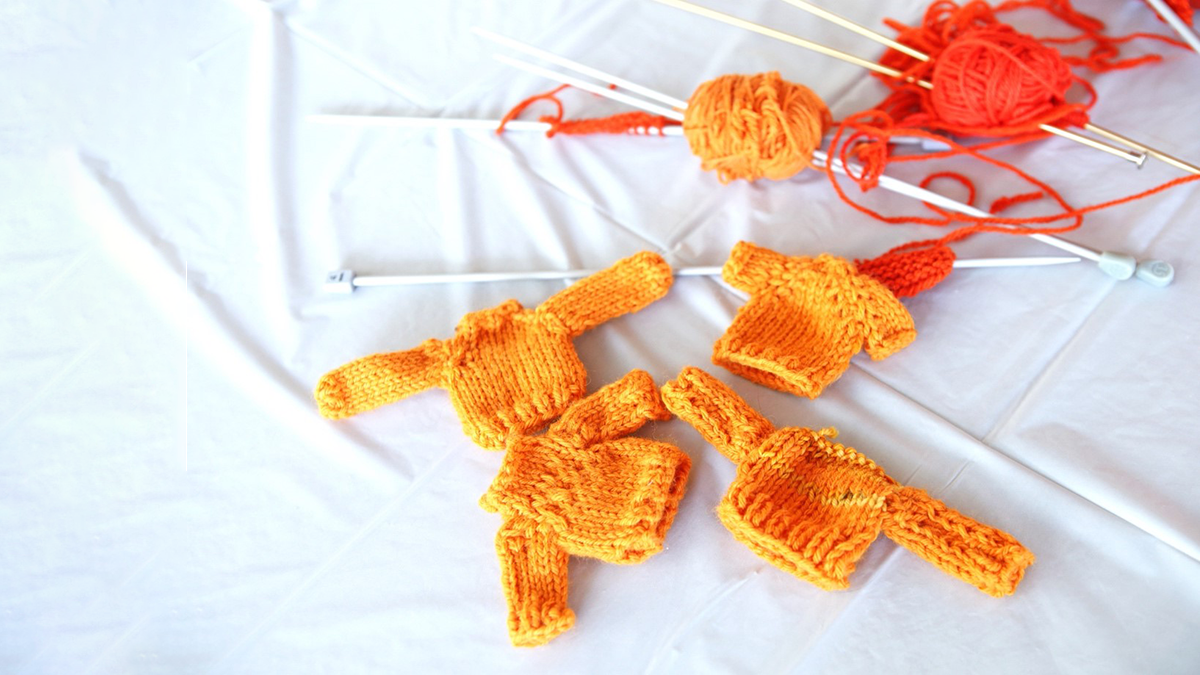
Hundreds of tiny, lovingly crafted orange shirts and sweaters are on display in the Neville Scarfe Building at the University of British Columbia. Each little garment represents a child who did not return home from residential school or a survivor who was forever changed. This dynamic art installation provides a site of remembrance and reconciling of residential schools.
A public unveiling ceremony will be held Monday, October 3, 2022, 11:30 am–12:30 pm. Learn more
The Orange Shirt Installation: A visual cue to attend to the Calls to Action
The installation is an act of public pedagogy designed to help teacher candidates keep Indigenous concerns and histories at the forefront of their thinking as they learn what it means to become an educator in British Columbia.
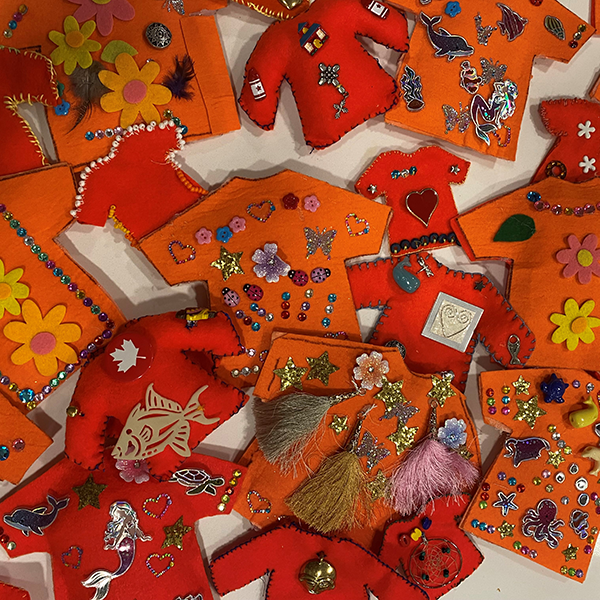
Because the project is dynamic, with new sweaters and shirts being added regularly, the installation will serve as a visual reminder that the number of unmarked graves continues to rise, and that the often-unacknowledged history of residential schools and our shared responsibility to work toward reconciling need continuing commitment.
Dr. Shannon Leddy, Assistant Professor of Teaching, UBC Faculty of Education, hopes that the installation will inspire people to examine the notion of decolonizing in different ways and to consider these questions: What does decolonizing mean? What does it mean that we live in a colonized country? In what ways are we all colonized?
Consider these questions: What does decolonizing mean? What does it mean that we live in a colonized country? In what ways are we all colonized?
Breaking free of colonial thinking will allow us to reimagine ways of being in the world that are not tied to Eurocentrism, white normativity, class and privilege but that are instead human-centered and focused on lifting up all of our students and each other.
Origins of the art installation
The Orange Shirt Project began in response to the May 2021 announcement from the Tk’emlups te Secwepemc First Nation of 215 unmarked graves at the site of the former Kamploops Indian Residential School. In a grassroots initiative, Jennifer Kent Symons from Vancouver Island posted a call-to-action to knitters on the Tiny Orange Sweater Project Facebook Group.
Dr. Lorrie Miller, a textile artist and instructor with the UBC Faculty of Education, was in involved in the initial project and invited colleagues Dr. Shannon Leddy, Dr. Kerry Renwick and Heather Clark to expand the project into a teaching tool.
Over the past year, faculty, students, colleagues and friends contributed tiny orange shirts and sweaters to this collaborative work.
Kerry Renwick, Shannon Leddy and Chrissy Smith adhered approximately 600 tiny shirts and sweaters to the installation panels that hang in the Scarfe building. The goal is to receive one tiny orange shirt or sweater for each of the estimated 7000 residential school children who did not reunite with their families.
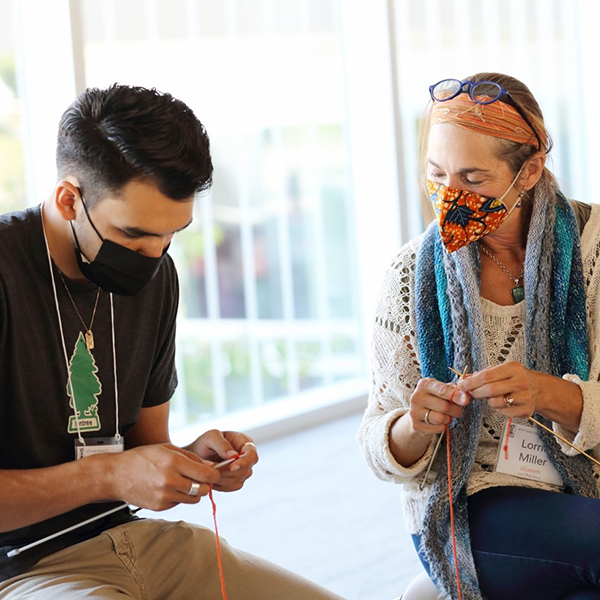
An open invitation to contribute to the Orange Shirt Art Installation
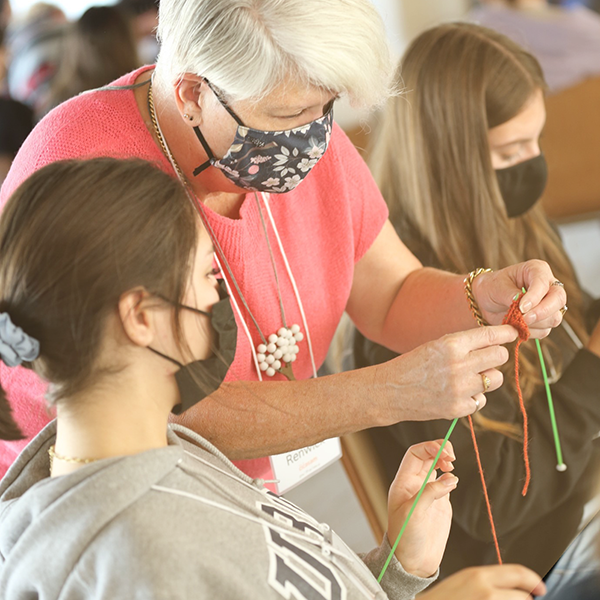
The Orange Shirt Project team extends an open invitation to anyone around the world who wishes to contribute to this active wall of remembrance.
Beginners, experts and everyone in between who wishes to crochet, knit, sew, bead, or cut something out of felt, may find patterns, instructions and videos here.
Please send your handmade contributions to:
Orange Shirt Project
c/o Shannon Leddy
Department of Curriculum & Pedagogy
UBC Faculty of Education
2125 Main Mall
Vancouver, BC V6T 1Z4
Truths of Indigenous trauma and Indigenous brilliance
This September 30 is the ninth Orange Shirt Day. It also marks the second National Day of Truth and Reconciliation in which the nation acknowledges the painful truth of Canada’s history of residential schools and cultural genocide.
Other truths that Dr. Leddy says are sometimes missing from our discussions are the truths about survivance, Indigenous successes, Indigenous humor and creativity, and Indigenous brilliance.
We tend to focus on the truths around Indigenous trauma, she says, but it’s important to keep at the center of our thinking the truths about Indigenous people living in the present as active participants in the world.
Dr. Leddy is working with Indigenous artists, authors, actors, comedians, dancers and singers to illustrate to her Indigenous and non-Indigenous students that Indigenous people are also all these wonderful things.
How conversations around decolonization changed
Dr. Leddy has noticed a change in her students since she began teaching twelve years ago. Teacher candidates are now coming in with a far better understanding of and openness to talking about Indigenous content, learning and histories. A few, though, remain somewhat resistant or are fearful of making mistakes.
But she says that this is one of the beautiful things about Indigenous thinking and pedagogies: there is room to make mistakes. As long as we understand what it means to make repairs—and not on our terms but on the terms of those we have injured—we make space for everyone to be human.
For many teacher candidates, Indigenous education is just one part of their curriculum. There is so much to learn, and this can be overwhelming. With time, as we continue to share Indigenous literature, scholars and arts with our teacher candidates, Dr. Leddy believes we will eventually achieve saturation.
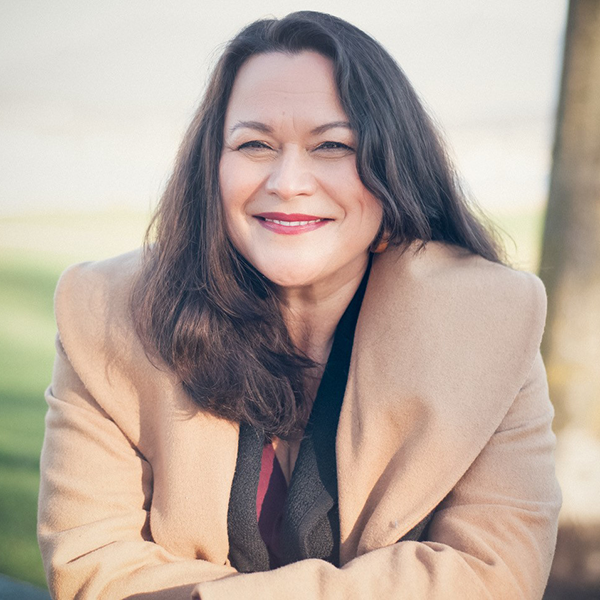
What’s next
Members of the Faculty of Education are collaborating on many Indigenous initiatives, including a mobile app that will offer an Indigenous art walking tour of the UBC campus as well as a visual storytelling project in which artists visually portray the stories of survivors of residential schools.
Mobile App: Indigenous Art Walking Tour of UBC campus
In collaboration with the Museum of Anthropology and Belkin Gallery, and with a grant from the Indigenous Strategic Initiatives Fund, UBC Faulty of Education faculty are developing a mobile app featuring a self-guided Indigenous art walking tour of the UBC campus. The app will provide information on Indigenous works of art on display in public spaces on the Vancouver campus along with interviews with artists and their families. It will also provide information linking the university’s relationship with the xʷməθkʷəy̓əm (Musqueam) peoples and their traditional, ancestral and unceded lands.
Visual storytelling and graphic art in genocide and human rights education
The Faculty of Education is involved in the SSHRC Partnership Grant, “Visual Storytelling and Graphic Art in Genocide and Human Rights Education,” led by Charlotte Schallié, University of Victoria. The project involves Education faculty members: co-director Andrea Webb, co-applicant Shannon Leddy, and collaborators Cash Ahenakew, Vanessa Andreotti, and George Belliveau. As the Turtle Island Cluster Lead, Dr. Leddy is helping to connect residential school survivors and with artists who will create visual depictions of their stories of residential school.
Learning resources
Decolonizing Teaching Indigenizing Learning website
A website supporting teacher candidates, in-service teachers, and faculty members as they move towards implementing Indigenous education and pedagogies into their curricula.
Decolonizing Together symposia
Two symposia were held, in October 2021 for teacher candidates and in January 2022 for teacher educators and staff, to cultivate inclusion of the perspectives and experiences of racialized and marginalized people previously absent in teacher education programming. Recordings are available below.
- Teacher Candidate Session (October 22, 2021): Decolonizing Together Symposium
- Teacher Educator and Staff Session (January 28, 2022): youtube.com
Indigenous curriculum bundles
In more than 20 curriculum bundles, developed by third-year Indigenous Teacher Education Program (NITEP) students, Indigenous teachers share their culture and learning with non-Indigenous teachers in ways that help Indigenous teachers understand what kinds of learning and humility they need to bring to using these curriculum bundles in their own classroom.